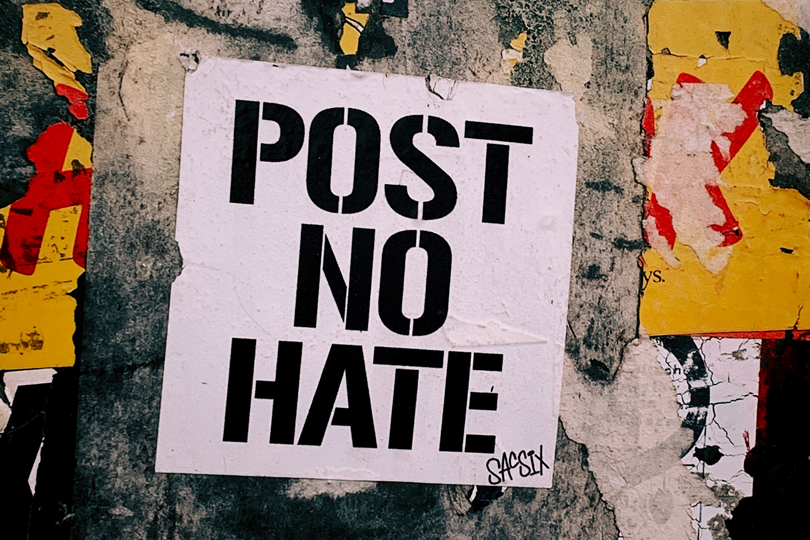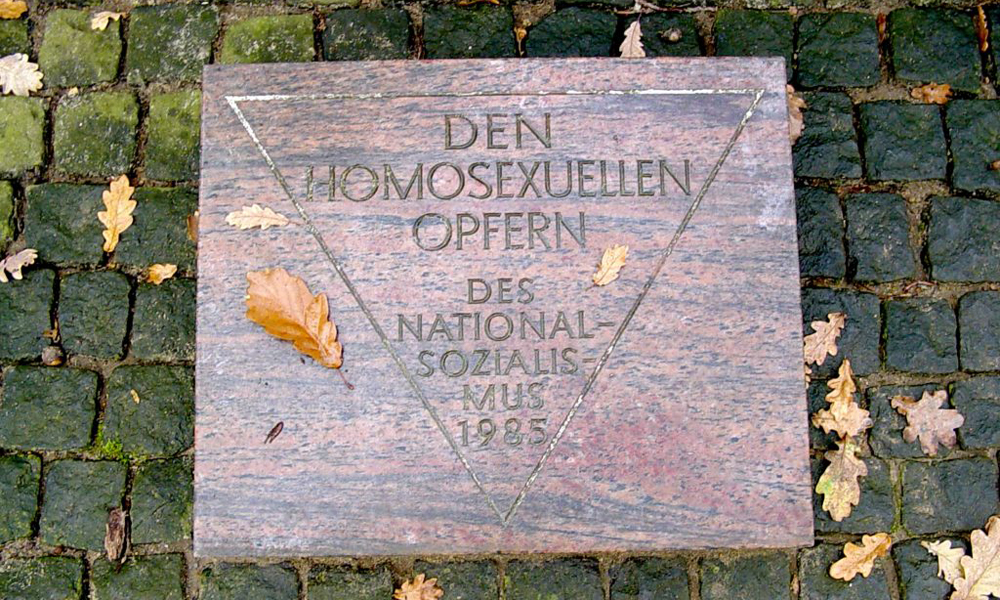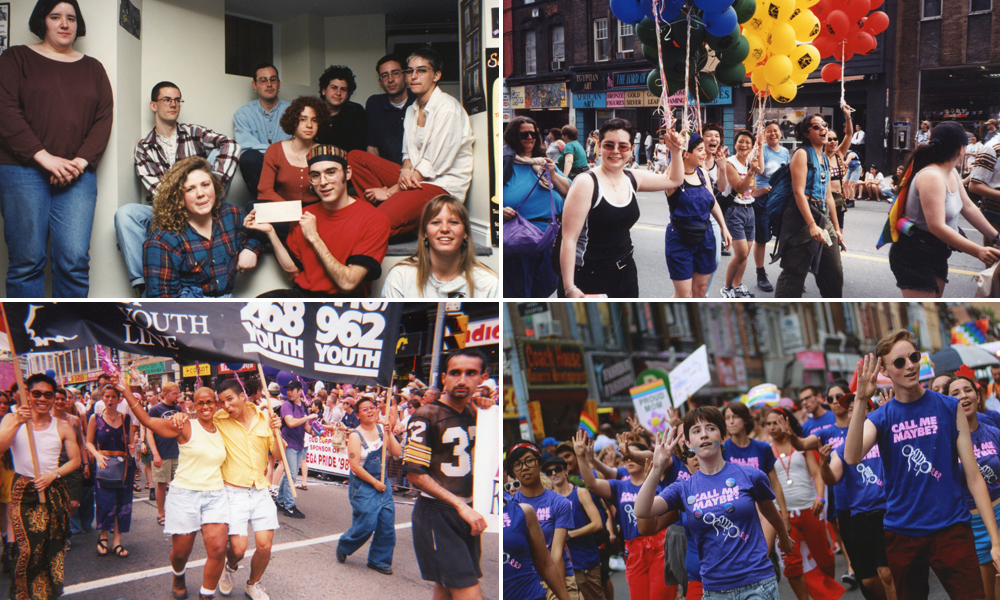The perfect recipe for finding the sweetness within one’s bitterness…
By Jesse Boland
As we wake up every day to news that our basic rights are being stripped away from us in the illusion of a just democracy; as we slowly starve to death from not being able to afford the “cost of living”; as our natural ecosystems burn around us in an Anthropocene of NFT-fuelled forest fires; is it so wrong that what feels like our only salvation can be to groan, roll our eyes, tweet “Fuck Camila Cabello!” with no context and keep it pushing?
Times are rough, and for that it only seems fair that we ourselves are getting rough as a way of surviving it, but at what point does our sardonicism drift into the very same nihilistic misery that is slowly poisoning our world? While many of us feel pulled into the polarizing ends of the philosophical spectrum of toxic-positivity optimists and pessimistic sadists, there exists a group of people within the lush lavender middle ground who can lead us through these turbulent times: The Haters.
Despite the first four letters of this word, we haters for the most part lack genuine hate within our hearts; we simply find joy in stripping it from others, and that’s okay…sometimes. Being a hater exists on the underlying rule of It’s really not that deep, wherein one may vent their frustrations to their friends, peers and acquaintances as a cathartic release of aggravation that can not only relieve stress but also create communal bonds through shared disinterests. Furthermore, creative insults and expressions of disdain have at times been some of the most profound proverbs of language, ranging from Oscar Wilde using his dying breath to bemoan the wallpaper surrounding his deathbed to Azealia Banks referring to Elon Musk as “Apartheid Clyde.”
The issue is that the art of shit-talking is slowly being unlearned by younger generations because of the shift in how people are able to communicate with one another in the digital age. Back in the olden times (before the existence of screenshots), people could air their dirty laundry with their full chests without fear of it being encapsulated sans context by their opps and having their isolated moment of frustration being used to assassinate their character. The act of expressing one’s catty and unkind words among confidants is commonly referred to as “kitchen table talk,” in reference to the concept of sharing problematic hot takes in an intimate setting…with the understanding that said conversation will not leave such space. But our modern culture’s deprivation of third places – the sociological term for social interactions outside of the home and workplace – leaves you with few intimate locations to congregate and dish about how Geena in HR is attempting to nostalgically pull off ombré hair again because 2013 was the last time she actually had a man. Instead, you’re left sending querulous quips in your WhatsApp group chats – knowing that Justin in the chat will probably send your text as a screenshot to Geena in their group chat because he’s still mad at you for referring to his new striped Zara button-up as “daring.”
Talking shit – much like taking an actual shit – is part of being human, and something that we are all guilty of and participate in several times a day whether we acknowledge it or not. What becomes dangerous, however, is when we vehemently fear being accused of being mean-spirited for casually making unflattering passive remarks and seek to justify our humane bitterness under the guise of virtue signalling. This mindset is seen egregiously online, especially in the celebrity-obsessed virtual realm of stan Twitter and pastel infographic Instagram, where hive-minded losers meticulously seek a justifiable reason to tear down public figures while keeping their keyboard-pounding hands clean. Instead of simply denouncing Halsey because you think her music sucks or because she seems like the person who drinks a glass of milk with her dinner, the seemingly justifiable way to criticize her is to write 1,100-word Medium essays accusing her of commodifying mental illness and perpetuating racialized neo-ablism because of her “tri-bi” comment from 2015, so that you can knock her down a peg while staying morally plateaued yourself. In our desire to avoid being perceived as the villains in the narratives we ourselves dictate, we have turned normal human discussion into a communal pseudo-creative writing debate class to assert our tenable malice, as opposed to simply tweeting “kill yourself, ugly” and going on with your day.
Embracing your appellation as hater is a cathartically freeing experience, but it also comes with its own set of boundaries and limitations. The line between cattiness and cruelty is invisible, and requires a great deal of tact and personal accountability to ensure that you do not mistakenly cross it and go from hater to straight-up bully. Ed Sheeran and Post Malone may be two of the most overplayed pop artists of our times and it can be understandable that the general public holds a certain dismay towards them, yet seeing how comfortable everyday people and even professional music publications feel bashing their physical appearance in highly publicized settings is just jarringly mean. To refer back to the golden rule of being a hater, It’s really not that deep, making catty remarks about and/or to a person should only ever be surface level and flippant, but never the reason someone is deprived of their sense of self-worth because you wanted to make a mean joke to feel clever. Be a hater, not an asshole.
The world is a bad place, and we don’t need to make it worse. The thesis of being a hater is that it should ultimately lead to something good, whether it be venting your frustrations so you can release that negativity and move on with your life; knocking out a clever comment that makes other people laugh; or raising a valid critique that changes the way others view a particular issue. Anger, frustration and dismay are all essential elements of being a human: when used productively, they can create the change we want to see in the world by showing that we refuse to tolerate the things that make us feel this way, but when mishandled, they can further fan the flames of hatred. Think about how entire subgenres of rock music have been eradicated because sad white boys stopped channelling their angst into music and started making incel Reddit forum pages. What a loss for the culture.
Hate can be a weapon but it can also be a tool, and once we find the balance of how to navigate these unpleasant feelings, only then can we create a dancery from our hateration.
JESSE BOLAND is that gay kid in class who your English teacher always believed in. He’s a graduate of English at Ryerson University (now Toronto Metropolitan University) who has a passion for giving a voice to people who don’t have data on their phones and who chases his dreams by foot because he never got his driver’s licence.







POST A COMMENT